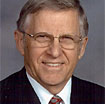Commentary on Acts 8:26-40
The post-Easter texts assigned for this year contain several readings from the Book of Acts.
These texts come in no particular order, save for the fact that the Sunday of Pentecost features the Pentecost story from Acts 2. Acts is a book carefully structured by Luke to do many things, not the least of which is to paint a broad canvas of the Spirit’s work in growing the church from Jerusalem to the ends of the earth.
I strongly recommend that at some point in the Easter season you help your parishioners see the big picture of Acts. Tell the broad story of Acts in story form. We find that story’s outline in Acts 1, verse 8: “But you will receive power when the Holy Spirit has come upon you; and you will be my witnesses in Jerusalem, in all Judea and Samaria, and to the ends of the earth.”
Other Pentecostal stories in Acts begin with the “Jerusalem Pentecost” story in Acts 2. Then, in the section preceding the text for this Sunday [Acts 8:4-24], we have the “Samaritan Pentecost.” Imagine! Even the Samaritans receive the gift of the Holy Spirit. God is moving on and out.
In this week’s text we have the story of Spirit-led Philip as he moves into completely new territory by baptizing an Ethiopian eunuch. The church is moving outwards.
In Acts 10-11, we have the “Gentile Pentecost” featuring a Roman centurion (!) and a stunned-by-the-Spirit Peter who becomes a missionary in no-man’s-land. The elders in Jerusalem are furious about Peter’s missionary work. (cf. Acts 11:1-18). Finally, in Acts 19:1-7, Paul is at the “ends of the [known] earth” in Ephesus laying on hands for a Pentecostal outpouring of the Spirit. What a mission story this is to tell! I pray that you can tell it in such a way that your hearers are excited about the early growth of the Christian Church.
Today’s story begins with Philip answering the angel’s call to go south on the road from Jerusalem to Gaza. Philip had witnessed the conversion of many Samaritans (cf. Acts 8.9-25), and will now bear witness to another outsider: an Ethiopian eunuch. The story of the eunuch’s conversion is followed by the conversion of Paul. All three stories lead us to the “Gentile Pentecost” in Acts 10-11 and the “conversion” of a Gentile Centurion.
First, the Ethiopian eunuch. We know he is a man of African descent: the first ever baptized! He is a eunuch and as such, according to Deuteronomy 23:1, he was half a man, unable to enter “the assembly of the Lord.” He was a minister of Candace, the queen of Ethiopia. Finally, he was neither a proselyte nor a Gentile, but one who lingered on the edges of Judaism. Indeed, he hungered to know the truth of a text from Isaiah which he was reading when Philip joined him.
Talk about barriers being broken down! It is incredible that Philip would baptize such a person and wash him into the world of Jesus Christ, the One who was like a lamb led to the slaughter.
This is sheer miracle – a miracle full of the grace of God in the person of Philip and the waters of renewal. The impossibility of this event is made possible by the unbelievable reach of God’s grace. Here lies the key to this story. It is also the key to salvation for you and all who gather with you in your church each weekend. Preach it!
The Good News is also there in the text the eunuch was reading. What passage of the Old Testament is more powerful in pointing to the revelation of God in Jesus Christ: “Like a sheep he was led to the slaughter, and like a lamb silent before its shearer, so he does not open his mouth” (Acts 8:32, quoting Isaiah 53:7).
We know the end of this story – the lamb of God who is slaughtered is raised from the dead. And this life is meant for all people, all children of the earth. These stories in Acts shout that message out on every page. Samaritans, eunuchs, Gentile centurions: all are embraced by God’s Lamb.
One option for a sermon on this text is to move from the sweep of mission in the Book of Acts (so clearly focused in this week’s text) to the state of mission in the southern hemisphere today.
Philip Jenkins, for one, writes of the incredible growth of the Christian Church in Africa and Latin America. The south is rapidly replacing the north as the population home of Christianity. We are witnessing the birth of a pre-Enlightenment Christianity sweeping vast areas of the southern globe. The Holy Spirit is alive there filling people with God, driving out demons, and healing diseases. This is the Christianity for the poor! It is powerful. And it is much like the Christianity of the Book of Acts. Thus, the stories told in Acts live with us today. The spirit of this book of mission is contemporary and relevant in our time!
Another focus for a sermon on this incredible text can center on Holy Baptism.
The story of our text raises the issue clearly: who is worthy to be baptized? An Ethiopian eunuch, that’s who. The last person in the world one would expect to be baptized. And to whom should we offer this sacrament of Baptism today? Let the Ethiopian eunuch be our guide! Who are the last and the least people in the world we are called to baptize today? Tell stories of people today who seem as far removed from God as is this eunuch. They are some of our most worthy baptismal candidates.
That’s the whole story of the Book of Acts. God’s grace is wildly inclusive. The church is moved out to the ends of the earth and reaches out still today.

May 10, 2009